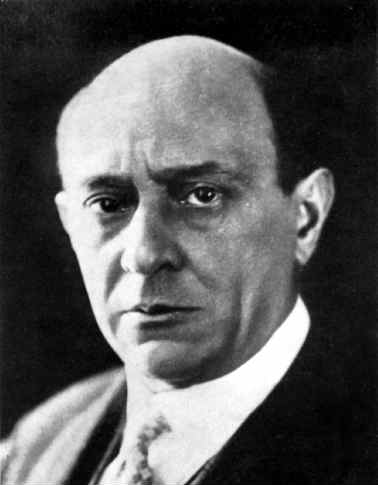
"Arnold Schoenberg (1874-1951) was particularly displeased with Thomas Mann for having presented Adrian Leverkuhn [the protagonist of Mann's novel
Doctor Faustus (1947)] as the inventor of the dodecaphonic method without even mentioning Schoenberg's name. In Febuary 1948 Schoenberg sent Thomas Mann an article which he had composed for an imaginary 'Encyclopaedia Americana' for the year 1988. Writing under the pseudonym Hugo Triebsamen, he attempted to suggest the damage which he believed the character of Leverkuhn could well inflict upon his own subsequent reputation. The article presents Thomas Mann as a writer who was originally a musician and the true inventor of the dodecaphonic technique. The writer suffers in silence when a certain thieving composer called Schoenberg appropriates this discovery for himself. It is only in
Doctor Faustus that the writer openly proclaims this spiritual-musical property as his own."
- from the notes on
Theodor W. Adorno and Thomas Mann: Correspondence 1943-1955, ed. Christoph Godde and Thomas Sprecher, trans. Nicholas Walker
Mann later tried to placate Schoenberg but he did not succeed. The invention of real things is an interesting problem in fiction: I had always wondered about
The Hudsucker Proxy, in which Tim Robbins' character "invents" the hula hoop, but Wikipedia
reveals that although the Wham-O toy company repopularised the hula hoop in the late 50s, they were unable to patent it because it had been in use for thousands of years.
The letters also reveal that Mann lived long enough - by about a year - to see, and dislike, the original Paris production of
Waiting For Godot. "I cannot help feeling some anxiety for the society that finds acclaimed expression in such a work."
No comments:
Post a Comment